Top Mehndi Designs for 2024: Trendy Patterns, Occasions & Cultural Origins
Introduction
Mehndi, or henna, is an integral part of celebrations in India, symbolizing joy, prosperity, and beauty. Known for its intricate designs, mehndi is widely used during weddings, festivals like Diwali and Eid, and various cultural occasions. This blog explores popular mehndi design patterns of 2024, their ideal occasions, and the cultural richness they represent. From dulha dulhan designs to easy backhand motifs, we'll journey through the best options and their origins.
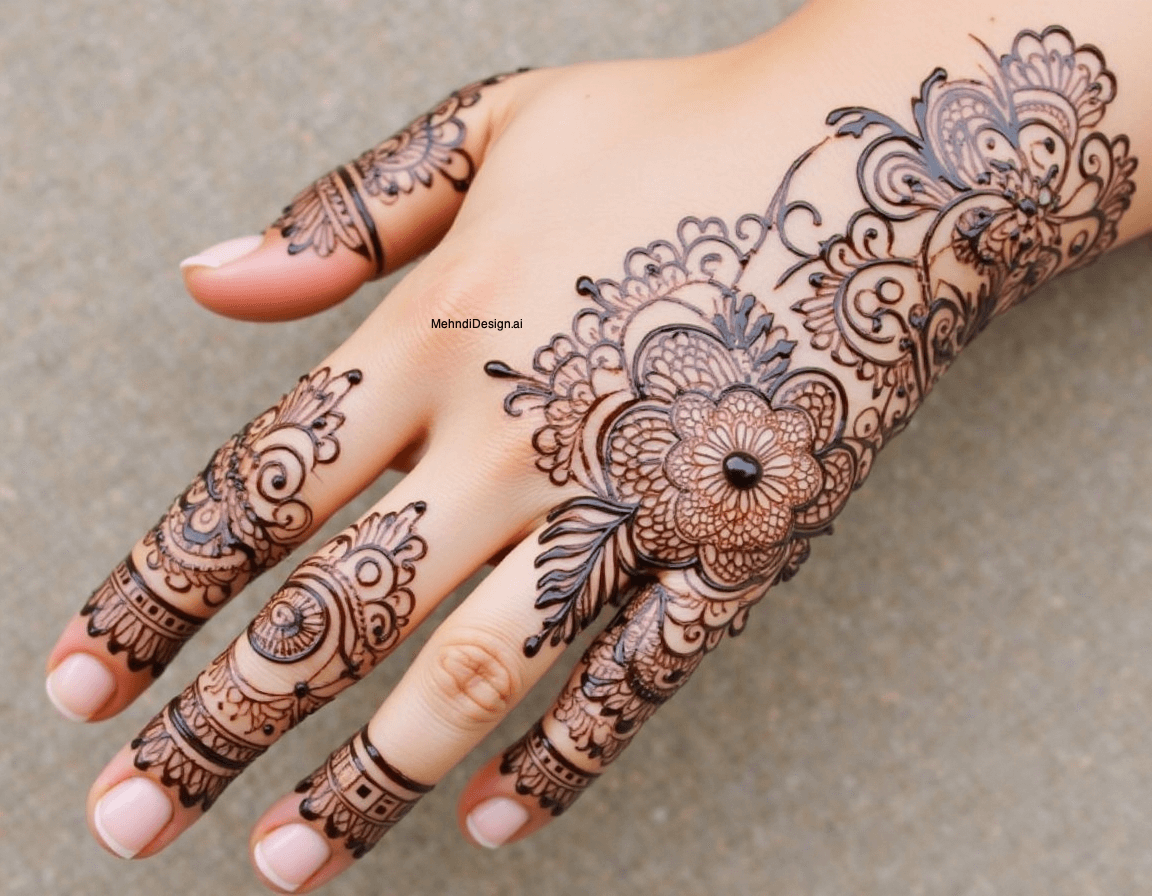
1. Dulha Dulhan Mehndi Design: Perfect for Weddings
Occasions: Traditional Indian Weddings
History & Significance: The dulha dulhan mehndi designs, featuring detailed illustrations of the bride (dulhan) and groom (dulha), are celebrated for their storytelling ability. This design is often applied to the bride's and groom's hands, symbolizing their union and love. Rich in details, these designs require a high level of artistry, incorporating figures, floral patterns, and traditional motifs.
Popular Patterns: Portraits of the bride and groom, intricate floral elements, and traditional Indian symbols like peacocks and lotuses.
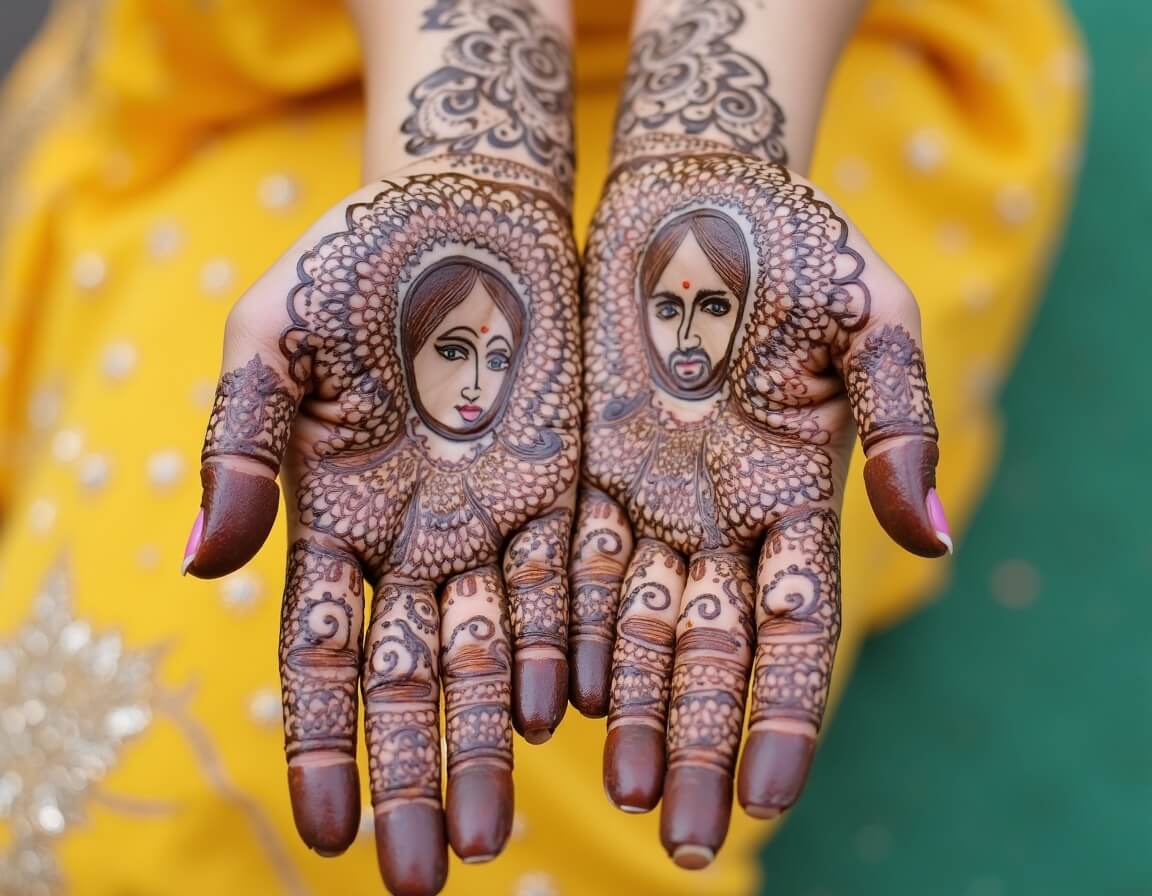
2. Floral Mehndi Design: A Symbol of Elegance
Occasions: All festive gatherings, weddings, and casual events
History & Significance: Floral mehndi designs are timeless, drawing inspiration from nature's beauty. This type is perfect for those looking for simplicity with a touch of grace, making it popular among bridesmaids or younger family members. Flowers symbolize growth, beauty, and grace, fitting well with Indian cultural themes of purity and happiness.
Popular Patterns: Rose and lotus motifs, vines, and single large floral patterns on the back of the hand.
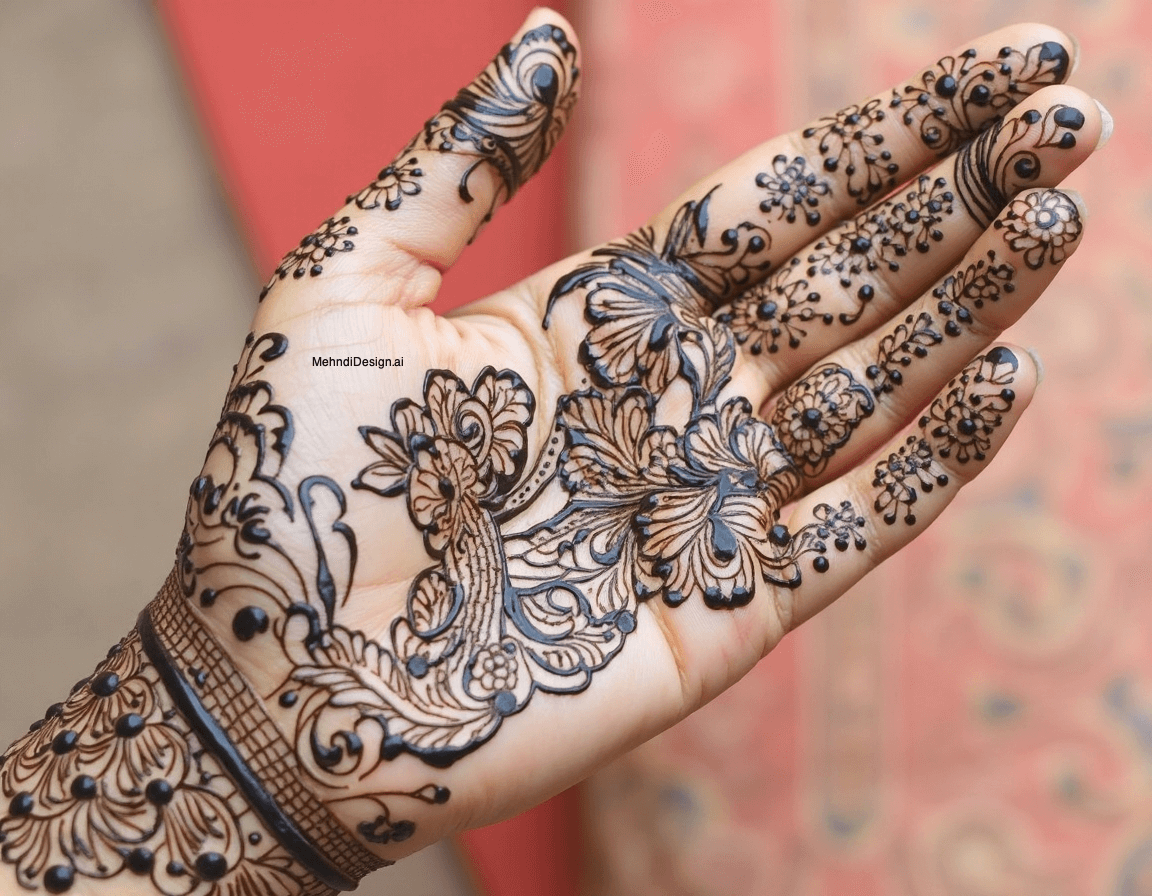
3. Arabic Mehndi Designs: Elegance Meets Simplicity
Occasions: Engagements, casual gatherings, Eid
History & Significance: Originating from the Middle East, Arabic mehndi designs are characterized by their flowing, asymmetrical patterns and large floral motifs. Unlike traditional Indian mehndi, these designs are more spaced out, giving a graceful and modern look.
Popular Patterns: Bold floral and leaf motifs, paisleys, and minimal yet stylish patterns running from wrist to fingers.
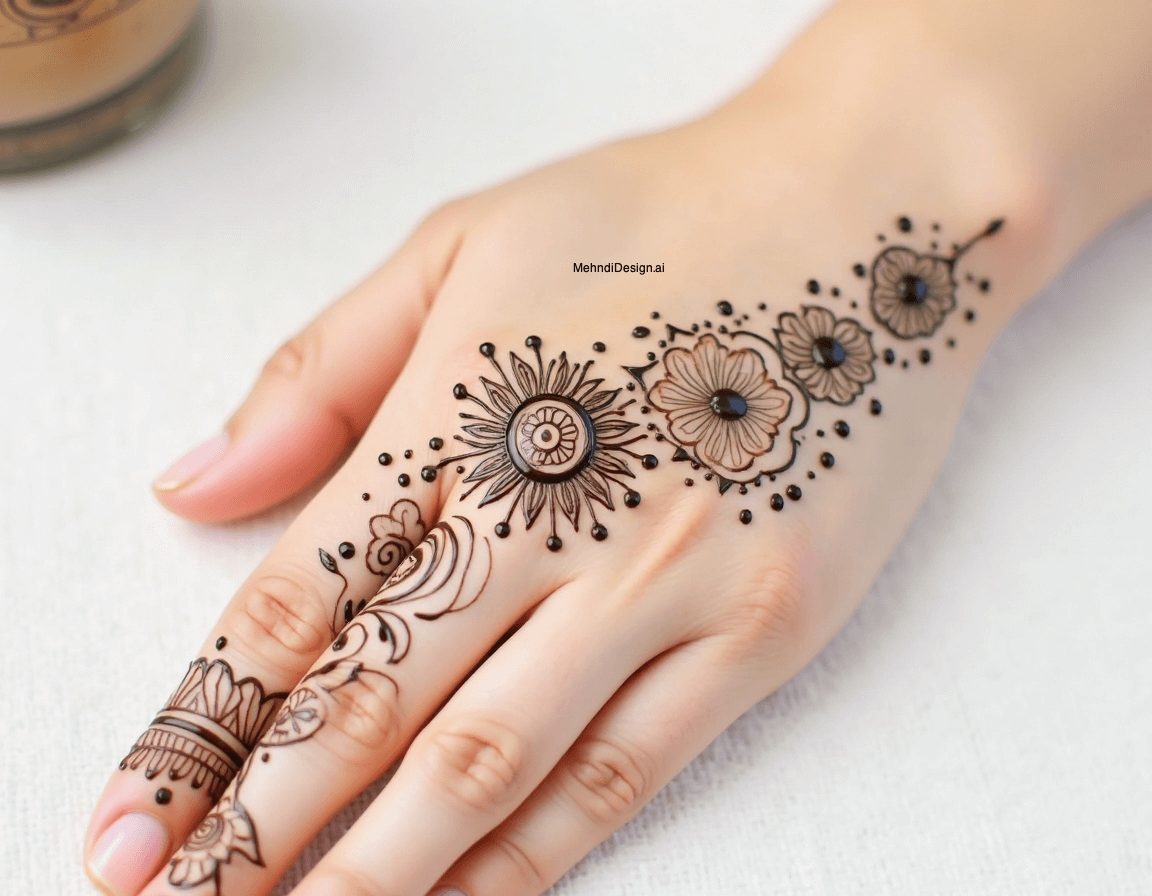
4. Round Mehndi Design: Classic and Simple
Occasions: Religious events, baby showers, and family gatherings
History & Significance: Also known as mandala design, the round mehndi pattern is a classic choice. With its origins rooted in spiritual symbolism, round mehndi designs are not only beautiful but hold significance in terms of harmony and balance.
Popular Patterns: Central mandalas with delicate patterns around the main design, usually applied on the palms or back of the hand.
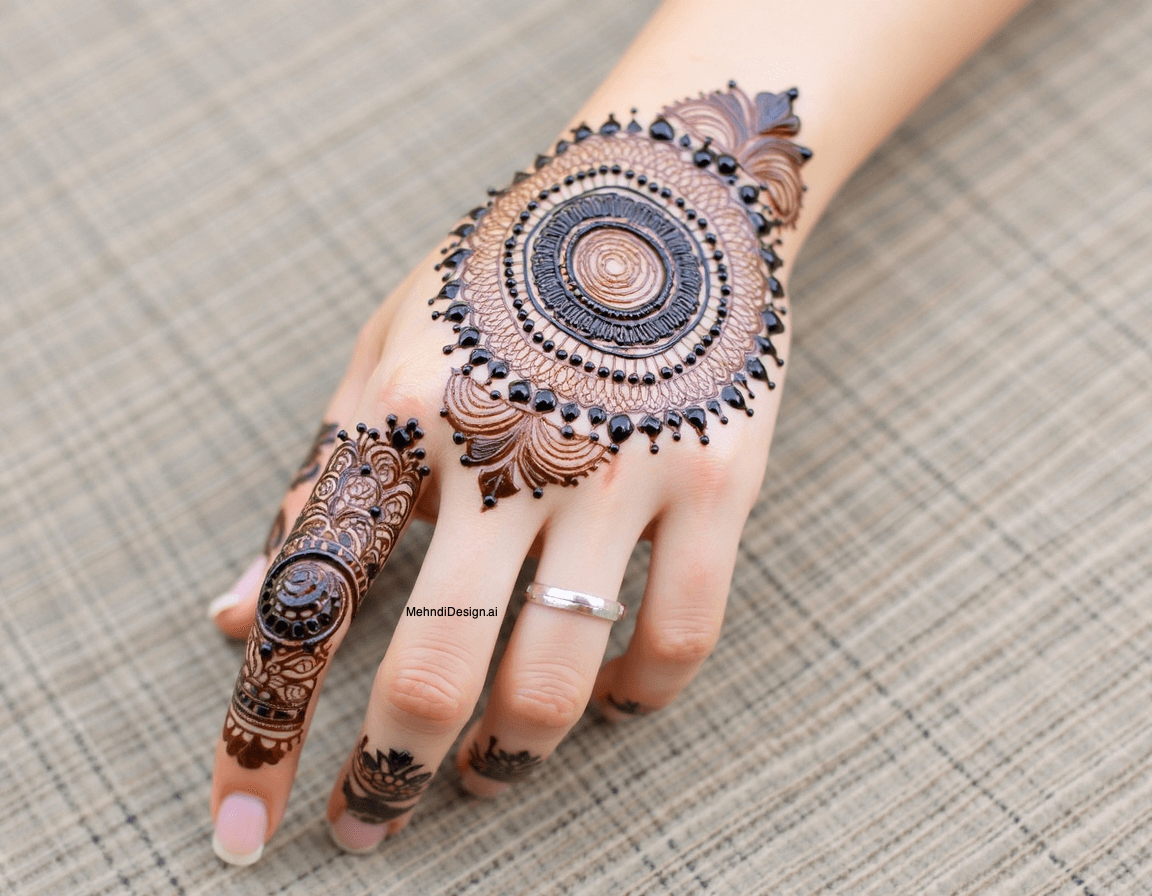
5. Full Hand Mehndi Design: For the Traditional Bride
Occasions: Weddings, traditional ceremonies
History & Significance: Full hand designs cover the entire hand with intricate details, from fingertips to wrists, sometimes extending to the elbows. This style is favored by brides in India for its elaborate detailing and symbolism of beauty and elegance. It is considered auspicious for the bride to wear full-hand mehndi, symbolizing love, prosperity, and joy.
Popular Patterns: Geometric patterns, floral trails, and cultural symbols such as peacocks, paisleys, and lotuses.
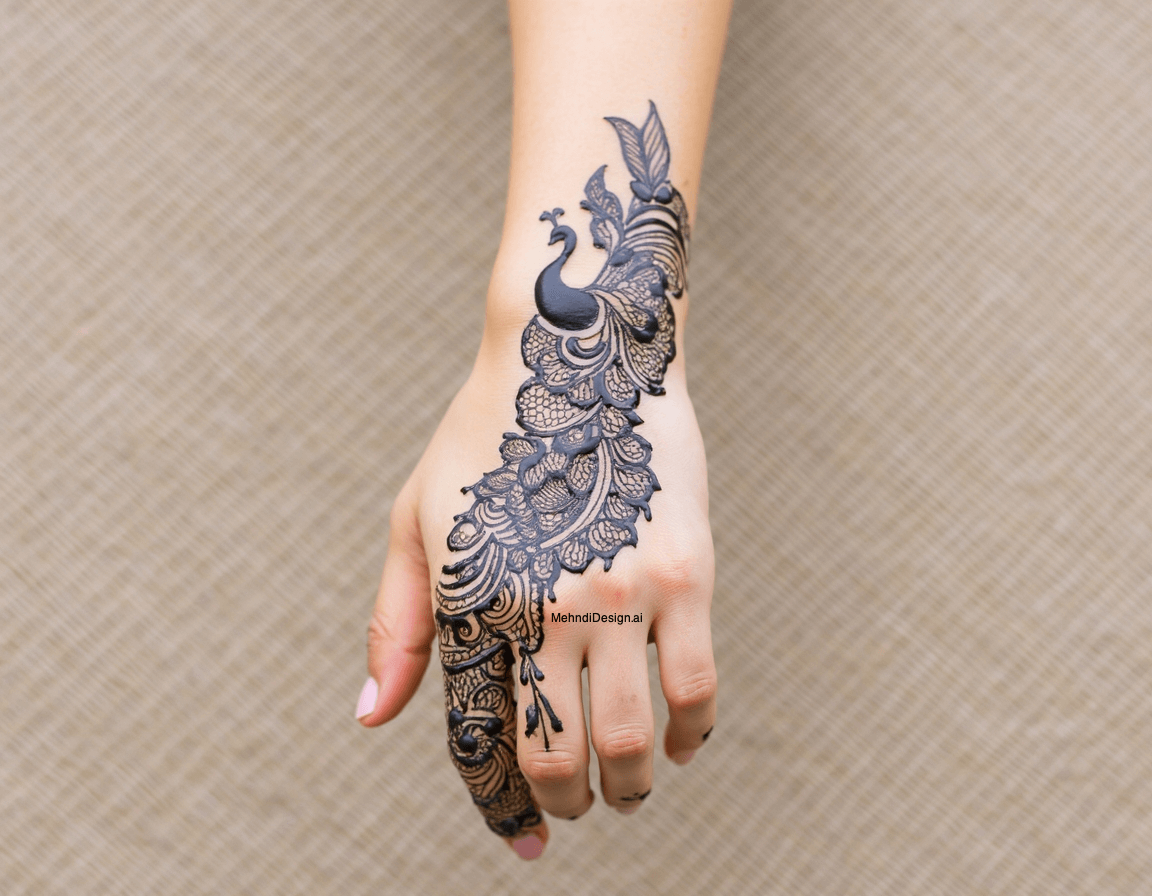
6. Easy and Simple Mehndi Designs: For a Quick, Stylish Look
Occasions: Small gatherings, casual wear
History & Significance: Easy and simple mehndi designs cater to those who prefer minimalism and elegance. Suitable for younger audiences and for those new to applying mehndi, these designs are quick to make and can suit any casual occasion.
Popular Patterns: Simple floral designs, dots, lines, and minimal wrist bands.
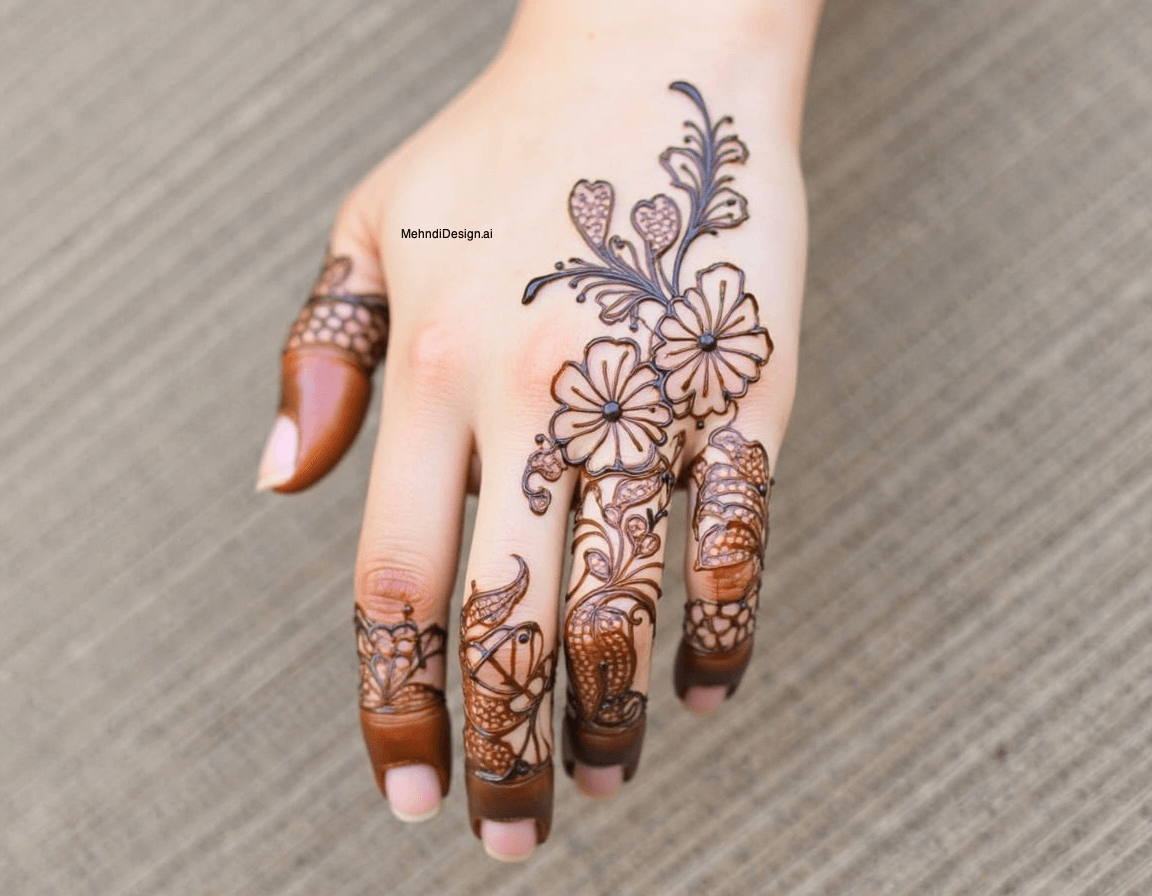
7. Back Hand Mehndi Design: Effortlessly Chic
Occasions: Parties, festivals, and engagements
History & Significance: The backhand mehndi design has gained popularity for its chic look. Often simpler than full-hand designs, backhand mehndi allows for creative freedom with floral or abstract patterns that look elegant and complement jewelry.
Popular Patterns: Dainty floral vines, bracelets around the wrist, and fingertip designs.
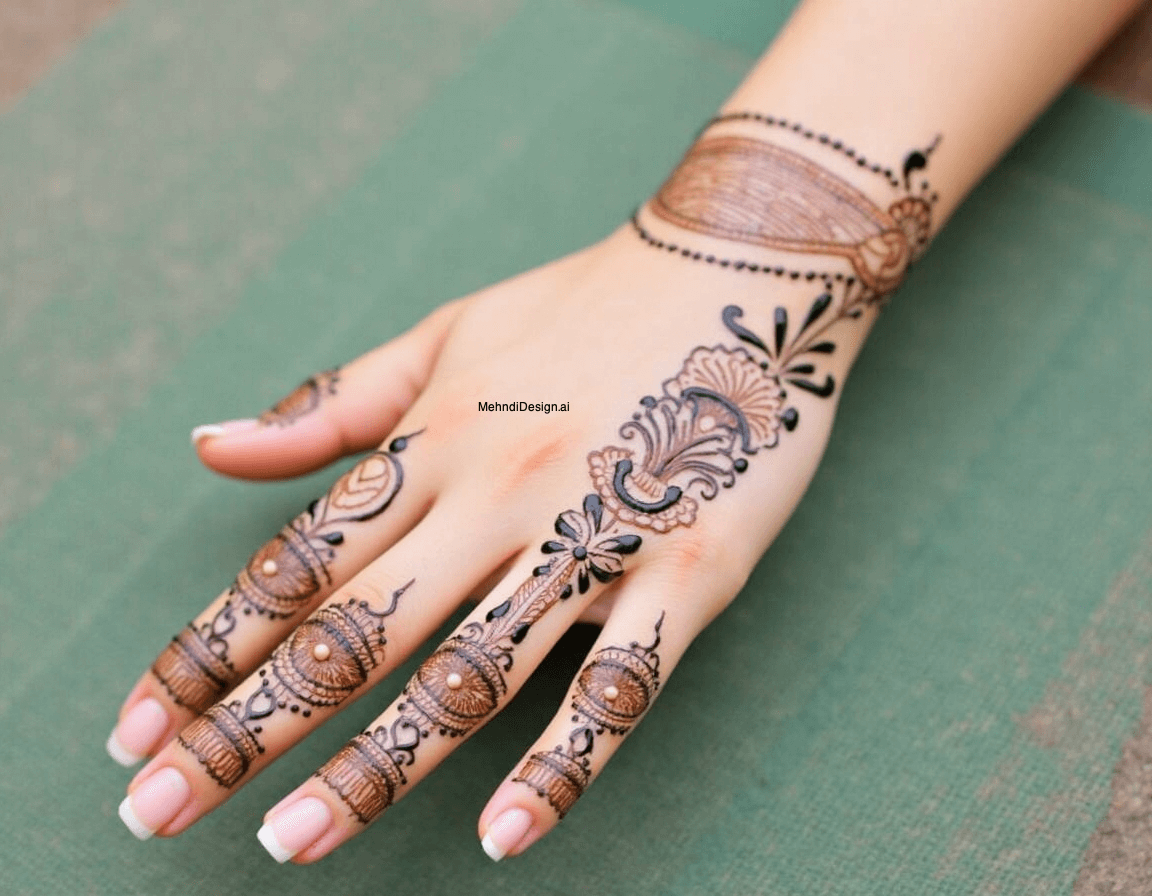
8. Bridal Mehndi Designs: Unmatched Detail for the Bride
Occasions: Wedding day, reception
History & Significance: Bridal mehndi is an essential part of Indian weddings. Known for their complexity, bridal mehndi designs cover the entire hands and feet with intricate motifs that symbolize prosperity, fertility, and beauty. The design often includes the groom's initials hidden within the patterns, a playful tradition.
Popular Patterns: Portraits, paisleys, florals, and intricate motifs covering hands and feet.
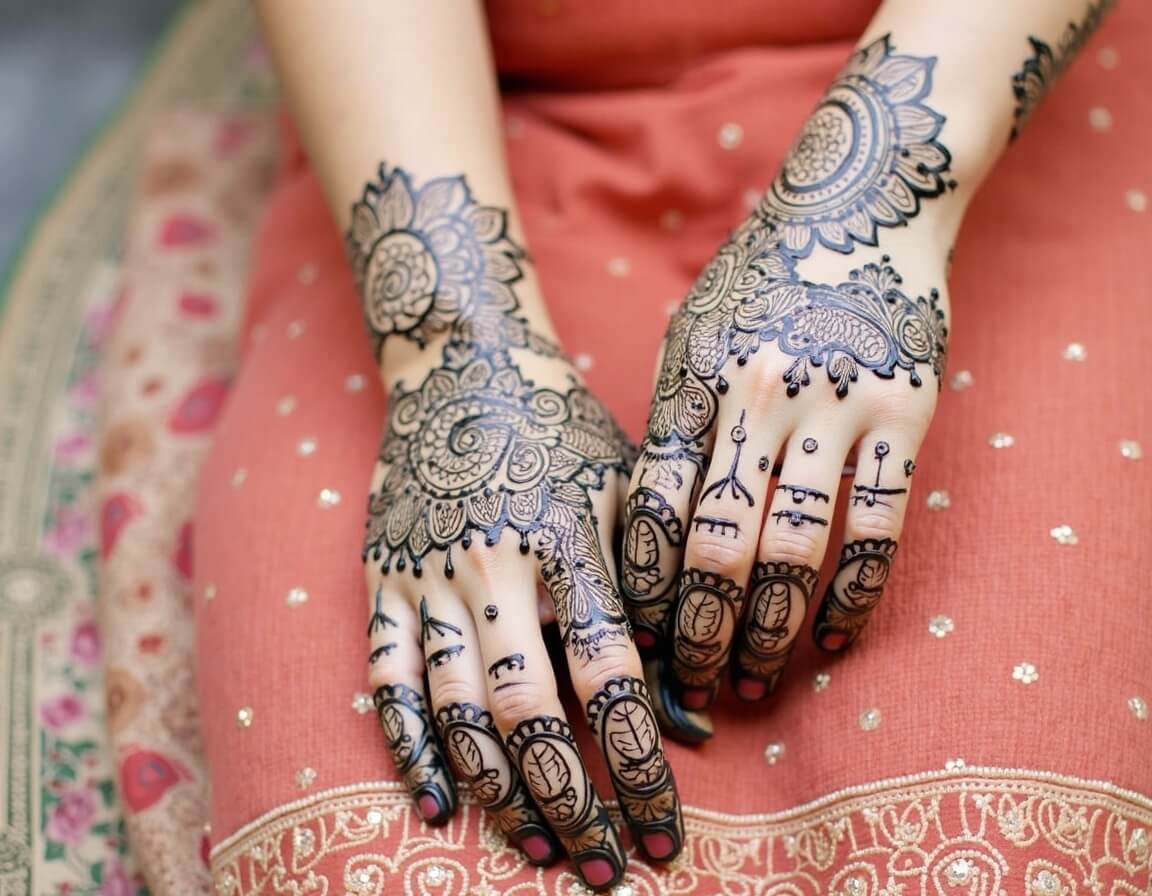
9. Leg Mehndi Designs: Adding Grace to Every Step
Occasions: Weddings, pre-wedding ceremonies
History & Significance: In Indian weddings, leg mehndi is as significant as hand mehndi for brides. Detailed patterns cover the feet, symbolizing beauty and grace. These designs vary from simple to highly intricate, depending on the occasion.
Popular Patterns: Full feet floral designs, anklet motifs, and geometric patterns.
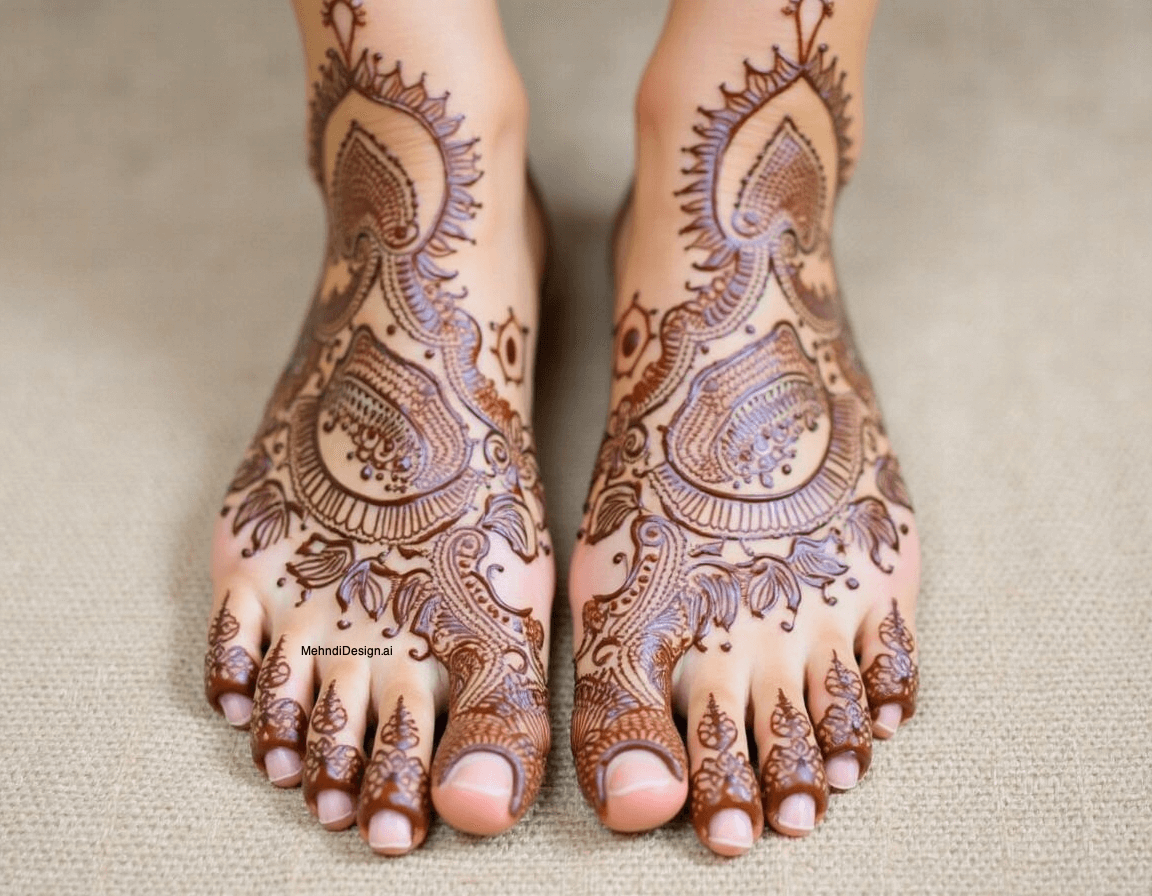
10. Stylish Mehndi Designs: Blending Tradition with Modernity
Occasions: Festivals, fashion events
History & Significance: Stylish mehndi designs have become popular for their contemporary appeal, merging traditional motifs with modern design elements. These designs often include trendy patterns like henna tattoos and geometric shapes, making them ideal for a fashionable twist on tradition.
Popular Patterns: Abstract shapes, dots, negative space designs, and contemporary patterns.
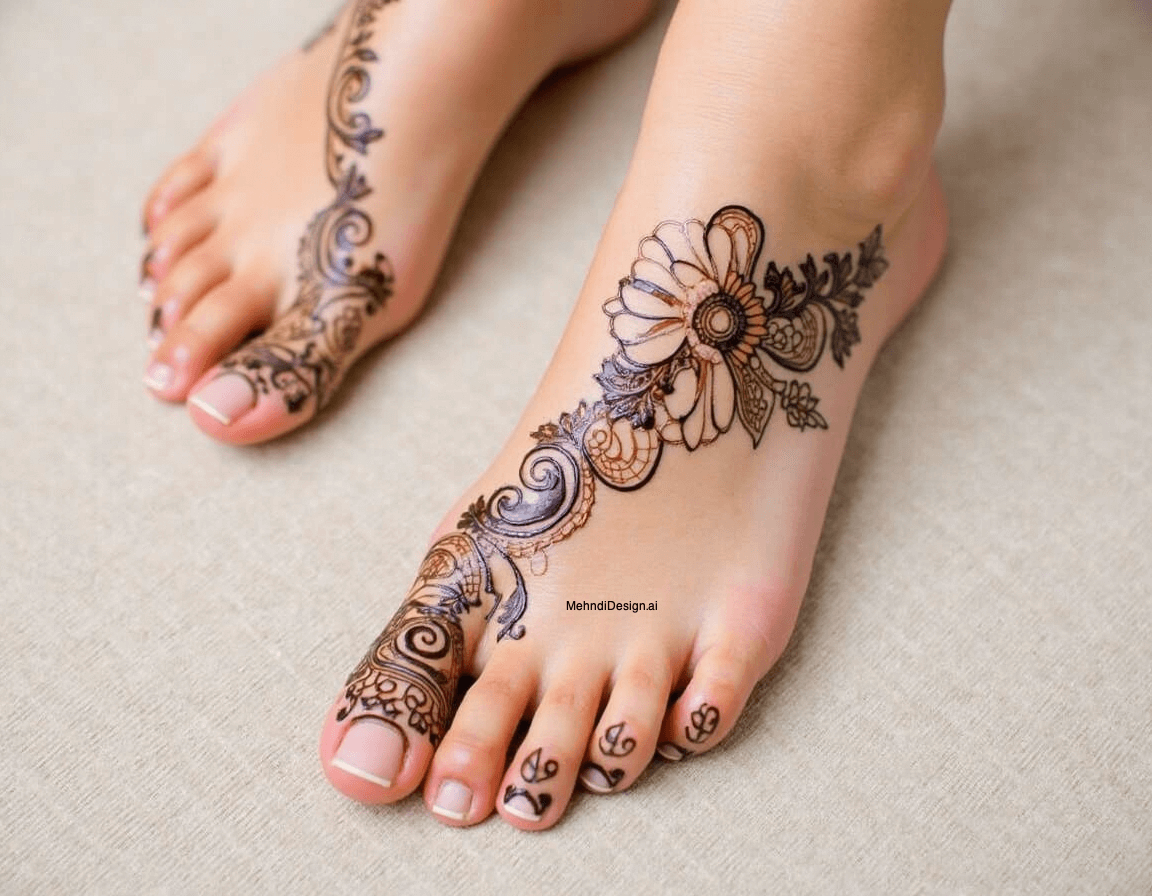
History of Mehndi: A Look Back at Its Origins
The history of mehndi dates back over 5,000 years, with origins in India, the Middle East, and parts of Africa. Originally used as a cooling agent in hot climates, mehndi gradually became a cultural symbol of beauty and tradition. Its use during weddings, religious celebrations, and social gatherings signifies joy and prosperity. Today, mehndi continues to be a cherished tradition, uniting generations with its beautiful, lasting art.
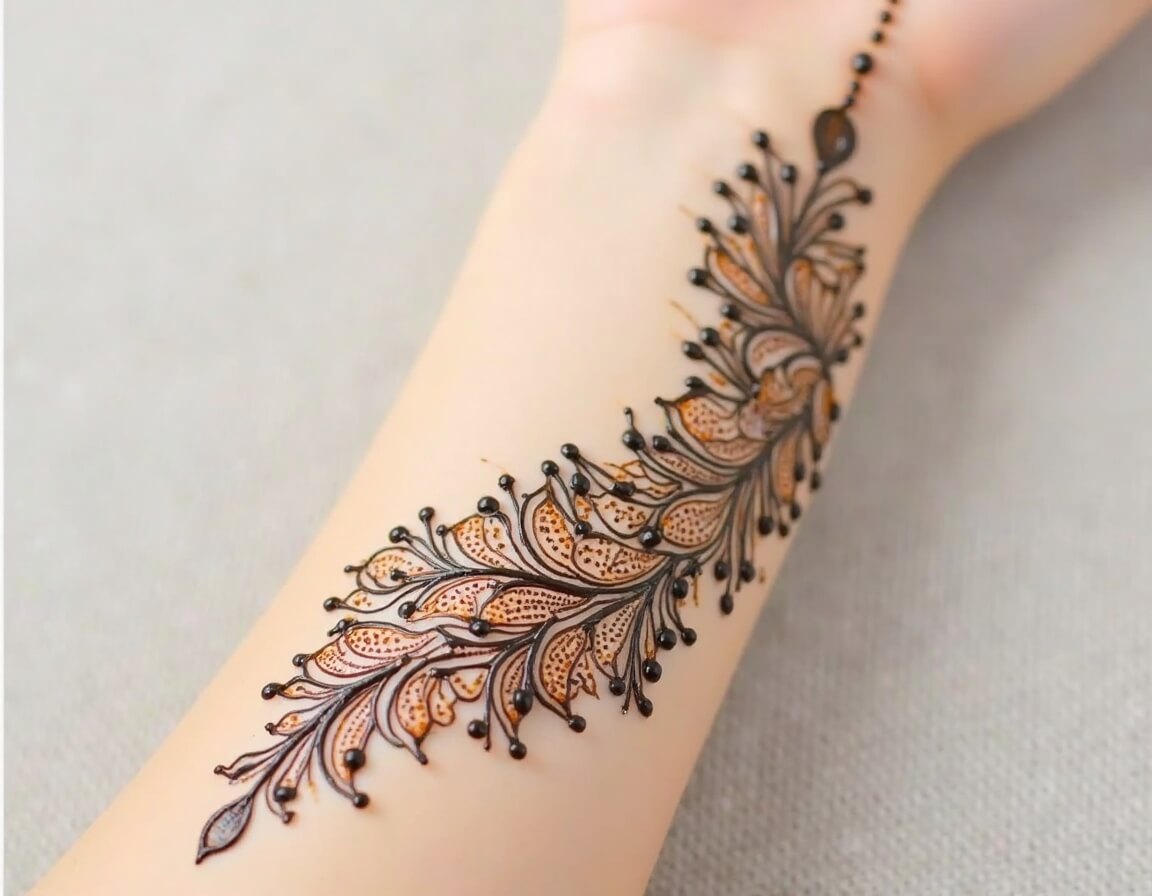
2024 Trends: What's New in Mehndi Designs?
This year, we've seen a blend of traditional and modern approaches to mehndi design. Popular trends in 2024 include minimalist patterns, especially for young brides who prefer elegance without heavy detailing. Social media platforms like Instagram have influenced the popularity of new designs, like khafif (fine) designs and fusion patterns that incorporate Arabic, Indian, and even tattoo-like elements.
Trending Patterns:
- Instagram-inspired designs: Modernized patterns featuring stylish motifs and symbols.
- Khafif designs: Fine, intricate lines with minimal filling, perfect for a delicate look.
- Front Hand Designs: Compact and stylish patterns for the front hand, ideal for Instagram-worthy photos.
Conclusion: Celebrating Diversity in Mehndi Art
From intricate dulha dulhan motifs to simple and stylish patterns, the world of mehndi designs is as diverse as the people who wear it. Each design type has its significance, reflecting cultural heritage, occasion, and personal style. Whether you're preparing for a wedding, festival, or a casual gathering, mehndi offers a pattern that enhances every celebration, bringing beauty, joy, and tradition to life.
- mehndi designs 2024
- bridal mehndi
- floral patterns
- backhand mehndi



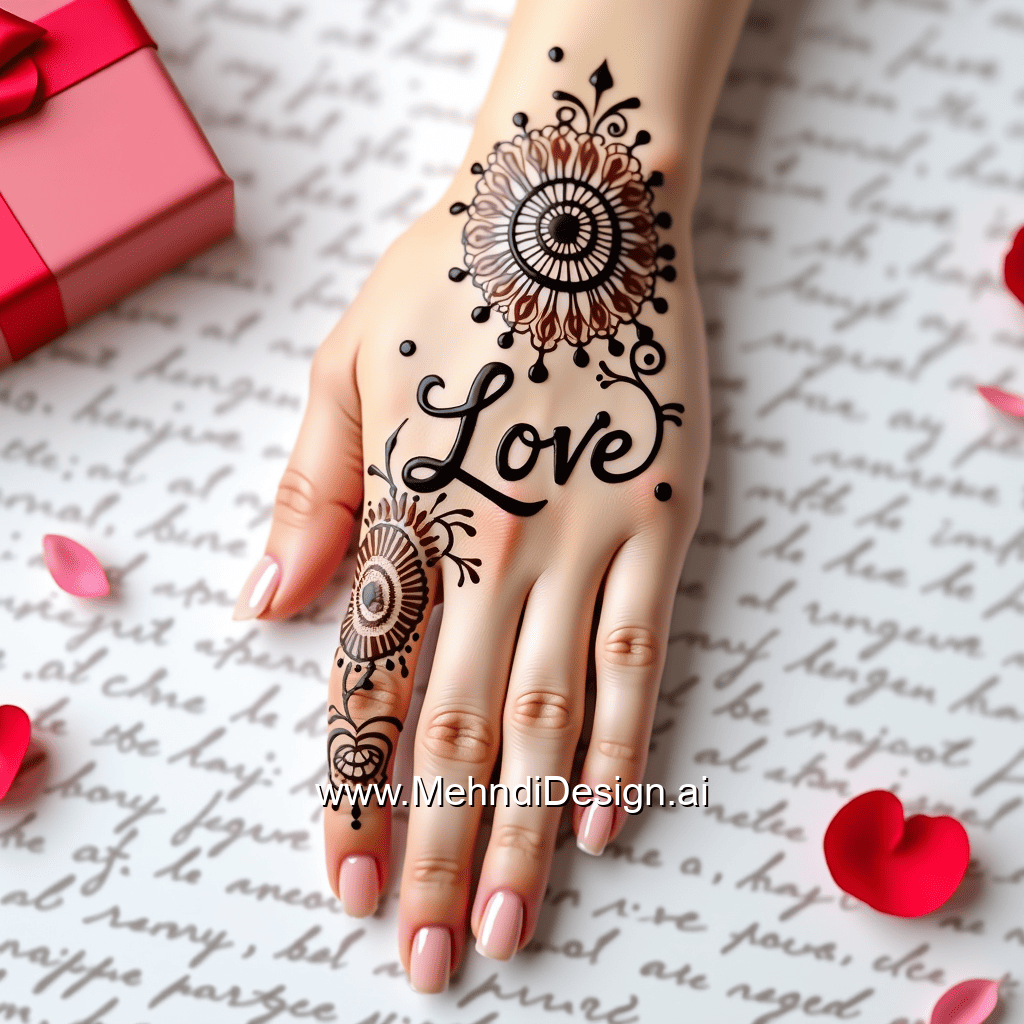
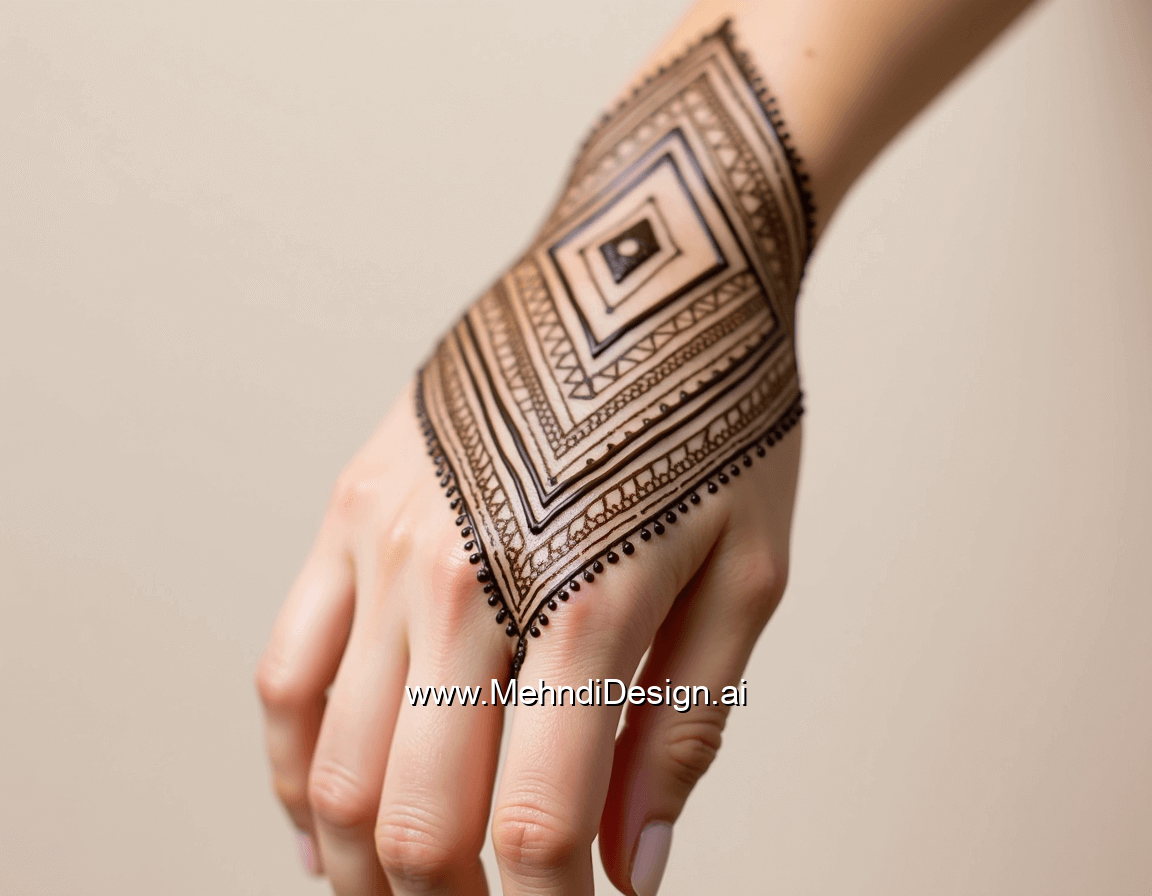
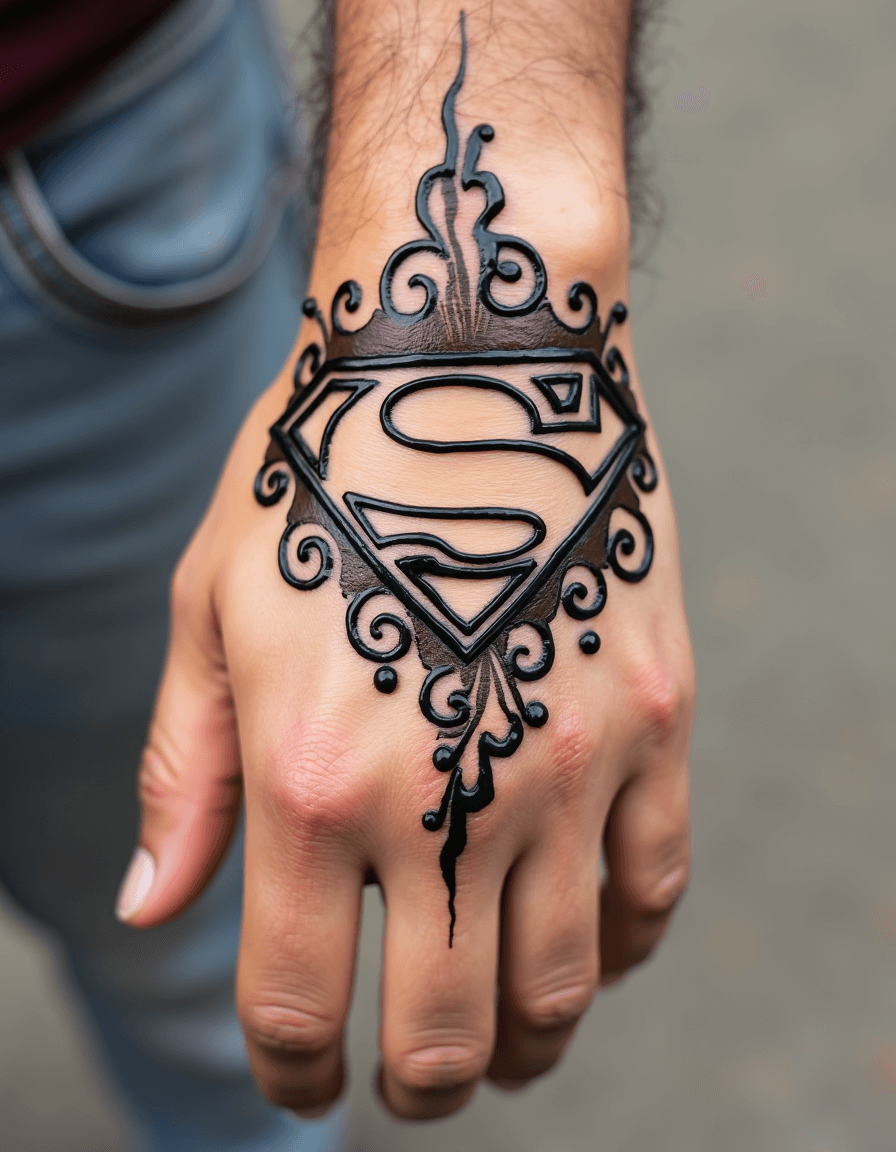
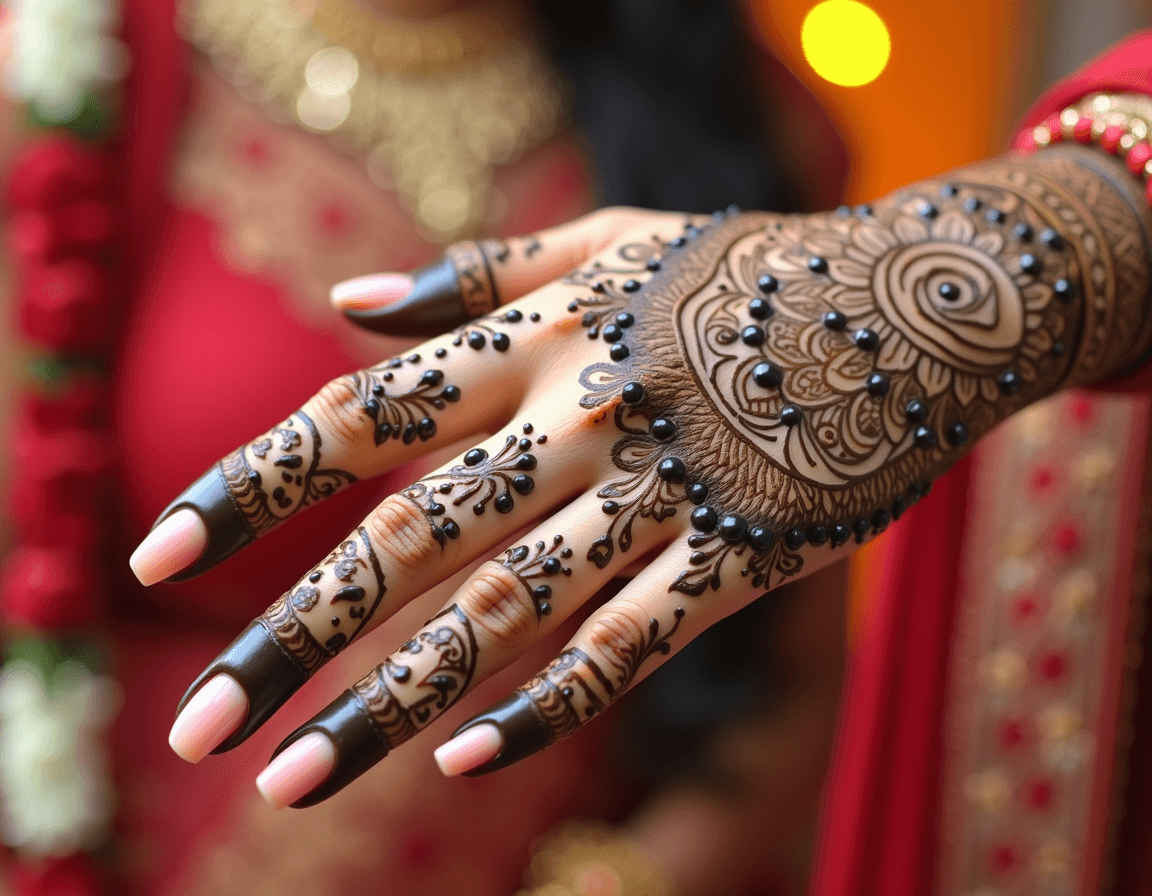
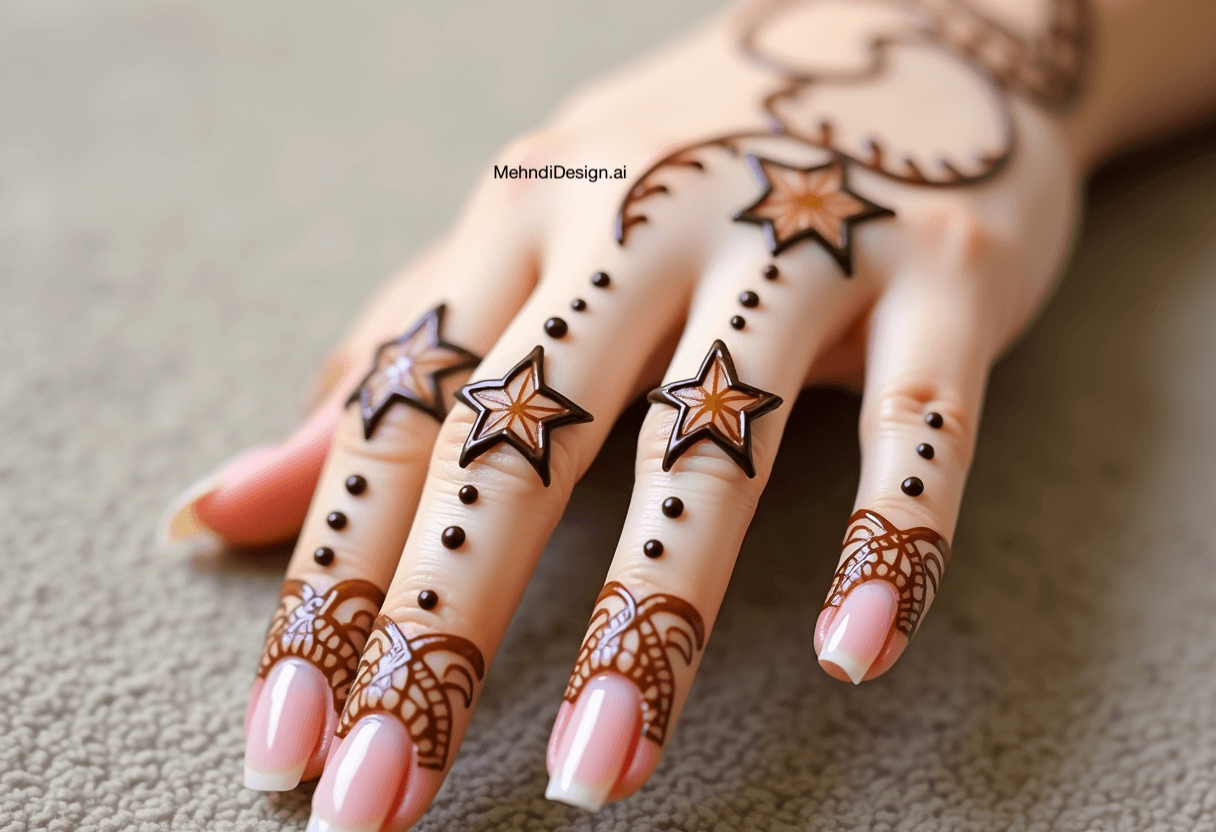
Leave a Reply
Your email address will not be published. Required fields are marked *